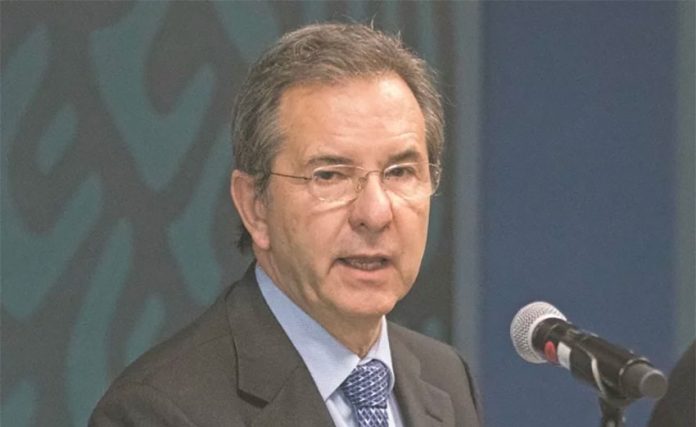Mexico’s results in the PISA mathematics, reading and science tests shouldn’t be compared with those of rich countries, Education Secretary Esteban Moctezuma Barragán said on Tuesday.
Published on Monday, the results of the 2018 Program for International Student Assessment, or PISA, survey showed that Mexican 15-year-olds rank last among students in the 36 OECD member countries in all three areas.
Moctezuma told a press conference that Mexico’s results should be compared with those of other Latin American nations rather than OECD member countries.
“One thing that we have to understand is that the OECD is a club of the world’s rich and developed countries . . . If we compare ourselves with similar countries, with whom we have a similar history and which were also conquered by Spain . . . we see that Mexico is in the top places,” he said.
Among nine Latin American nations that participated in the PISA tests (eight Spanish-speaking countries and Brazil), Mexican ranked fourth in reading and third in both math and science.

Moctezuma also emphasized that Mexican students fared a lot better than the OECD average in socio-emotional skills.
He highlighted that 83% of students surveyed said they are satisfied with their lives, 96% said they are happy and 89% said they can usually find a way out of difficult situations.
“Mexico is much better than all the other OECD countries on socio-emotional issues,” Barragán said.
“. . . The discussion now is whether things like convivencia [coexistence or togetherness] and second language [skills] will be included in the next PISA tests. If they’re added . . . things will improve,” he said.
Meanwhile, a co-director of the Center for Universal Education at the Brookings Institution, a Washington, D.C., public policy organization, said the Mexican government’s education policy is geared more towards political interests that students’ learning needs.
“Some things are very concerning from my point of view,” Emiliana Vegas said during an interview at the World Innovation Summit for Education in Doha, Qatar.
She said the decision to disband the National Education Evaluation Institute represented the loss of an autonomous body that could have guided the government on education policy. The Latin America education expert also said that the way in which the government is allocating teaching positions and the agreements it has struck with teachers’ unions are politically motivated.
“It appears that the [aim of the new education] reform is not . . . to serve students better and for all Mexican students to have better quality education,” Vegas said.
“Rather it’s responding more to political interests and political support that might guarantee someone’s continuation of power, greater stability and less strikes in the short term but in the long term it’s bad for the country.”
Source: El Universal (sp), Reforma (sp)
